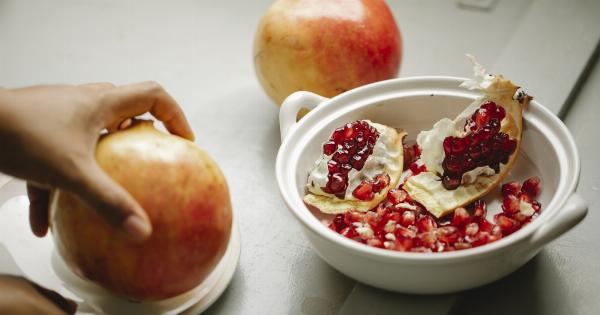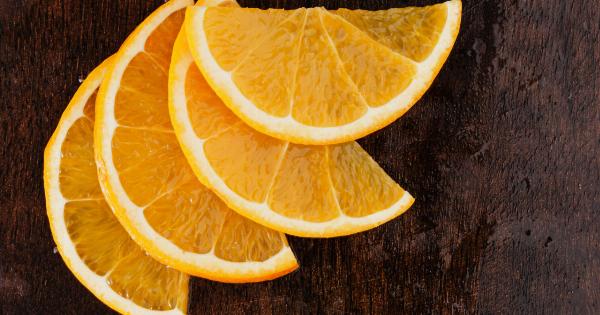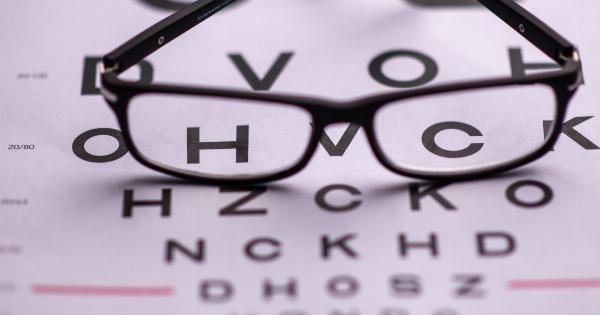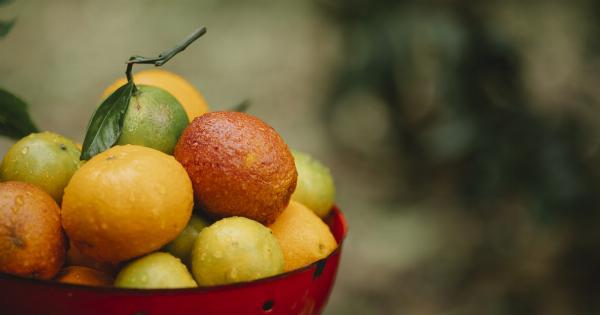After indulging in a delicious feast on New Year’s Eve, it’s not uncommon to wake up feeling bloated and uncomfortable.
The combination of rich foods, alcoholic beverages, and late-night snacking can wreak havoc on your digestive system, leaving you with a bloated belly and a general feeling of discomfort. But fear not, there are several tricks you can try to alleviate that bloated feeling and start the new year feeling lighter and more energized.
1. Stay Hydrated
One of the most effective ways to reduce bloating is to drink plenty of water. When you’re dehydrated, your body tends to retain water, which can contribute to bloating.
By staying hydrated, you can help flush out any excess water weight and relieve bloating. Aim to drink at least 8 glasses of water throughout the day to stay properly hydrated.
2. Sip on Peppermint Tea
Peppermint has long been used as a natural remedy for digestive issues, including bloating. Its soothing properties help relax the muscles of the gastrointestinal tract, allowing gas to pass more easily and reducing bloating.
Sip on a cup of warm peppermint tea after your indulgent meal to help ease bloating and promote digestion.
3. Avoid Carbonated Drinks
Carbonated beverages, such as soda or sparkling water, can cause gas to accumulate in your digestive system, leading to bloating. Skip these bubbly drinks for a while and opt for still water or herbal teas instead to help reduce bloating.
4. Practice Mindful Eating
Eating too quickly or mindlessly can contribute to bloating. Take the time to chew your food thoroughly and savor each bite. This allows your body to properly break down the food and reduces the amount of air you swallow, which can cause bloating.
Additionally, being mindful of portion sizes can prevent overeating and further discomfort.
5. Incorporate Probiotics into Your Diet
Probiotics are beneficial bacteria that help support a healthy gut. Including probiotic-rich foods, such as yogurt, kefir, sauerkraut, or kimchi, can help improve digestion and alleviate bloating.
If you don’t consume enough probiotic-rich foods, you may consider taking a daily probiotic supplement to support your digestive health.
6. Go for a Walk
Physical activity can help relieve bloating by stimulating the muscles in your digestive tract and speeding up the digestion process. Going for a walk after your meal can help alleviate bloating and promote healthy digestion.
Aim for a gentle stroll for about 30 minutes to experience the benefits.
7. Avoid Foods That Trigger Bloating
Some foods are more likely to cause bloating in certain individuals. Common culprits include beans, lentils, cruciferous vegetables (such as broccoli and cabbage), onions, garlic, and high-fat foods.
Pay attention to your body’s response to different foods and try to limit or avoid those that tend to cause bloating in your case.
8. Practice Light Yoga Poses
There are specific yoga poses that can help relieve bloating and promote healthy digestion.
Child’s pose, seated twists, and the bridge pose are examples of poses that gently massage the abdominal area, improve circulation, and stimulate digestion. Practice these poses for a few minutes each day to help reduce bloating.
9. Use Natural Digestive Aids
Several natural digestive aids can help alleviate bloating. Ginger, for example, has anti-inflammatory properties that can soothe the digestive system. You can enjoy ginger tea or add fresh ginger to your meals.
Similarly, fennel seeds can be chewed after meals to help reduce bloating and promote digestion.
10. Keep a Food Diary
Understanding your body’s response to different foods can help you identify triggers for bloating. Consider keeping a food diary to track what you eat and how it makes you feel afterward.
This can help you pinpoint specific foods or food combinations that may be causing bloating, allowing you to make more informed dietary choices.
Conclusion
Feeling bloated after New Year’s Eve dinner is a common discomfort, but it doesn’t have to ruin your day.
By staying hydrated, sipping on peppermint tea, practicing mindful eating, incorporating probiotics, going for a walk, avoiding trigger foods, practicing light yoga, using natural digestive aids, and keeping a food diary, you can help alleviate bloating and promote a healthier digestive system. Start the new year feeling lighter and more comfortable by trying these effective tricks.































